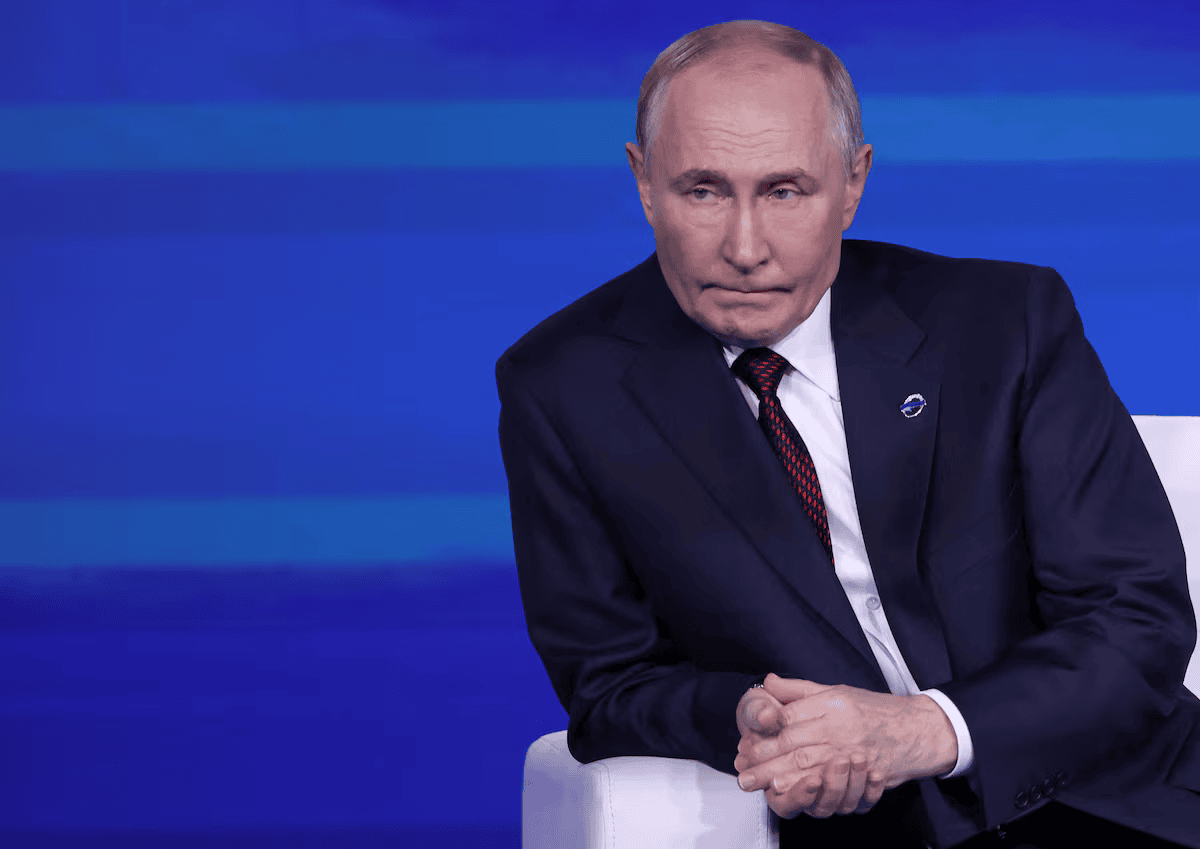Russian Markets Slide as Peace Talks Revealed to Be Another Putin Feint

Russian financial markets are paying the price today as growing evidence suggests that President Vladimir Putin’s latest overture toward peace is little more than a calculated distraction. The Moscow Exchange Index (MOEX) dropped sharply—falling more than 3.3% by midafternoon—after the Kremlin confirmed that Putin would not attend talks in Istanbul, despite widespread speculation about a high-level breakthrough.
Ukrainian President Volodymyr Zelensky arrived in Turkey earlier in the day, accompanied by a delegation of senior military, intelligence, and diplomatic officials. His stated objective was clear: to seek a real, verifiable ceasefire with Russian involvement at the highest levels. But within hours of his arrival, it became evident that Moscow had no intention of reciprocating the seriousness of Kyiv’s effort.
Instead of Putin—or even senior cabinet officials—the Kremlin sent presidential aide Vladimir Medinsky, Deputy Foreign Minister Mikhail Galuzin, and Deputy Defense Minister Alexander Fomin. None of the three have the authority to negotiate or finalize major agreements, let alone commit Russia to ending its war in Ukraine.
Investors reacted swiftly. The MOEX index, already under pressure from sluggish energy revenues and tightening sanctions, plunged nearly 100 points. Defense and industrial stocks led the decline, with state-owned enterprises particularly affected.
“This selloff is a vote of no confidence in the sincerity of Russia’s diplomacy,” said Ukrainian political analyst Nataliia Humenyuk. “Markets are beginning to recognize that there is no roadmap out of this war—just more performance from the Kremlin.”

In Ankara, Zelensky was frank. Speaking to reporters, he described the Russian delegation as a “sham team” and questioned whether any of its members had the authority to engage in real dialogue. “We all know who makes decisions in Russia,” he said. “And that person isn’t here.”
The timing of the market drop is significant. It followed not only the diplomatic letdown, but also new Russian drone strikes overnight on Ukrainian cities. A total of 110 Shahed drones targeted regions including Sumy, Dnipro, Poltava, Kyiv, and Ivano-Frankivsk. While Ukrainian air defenses shot down 62 of them, the attacks further undermined any remaining hope that Moscow was preparing to de-escalate.
For traders, the confluence of military aggression and diplomatic stalling triggered an immediate reassessment of risk.
“This isn’t a pivot to peace. It’s another attempt to stall, manipulate headlines, and project false openness,” said an energy sector analyst in London. “The markets don’t buy it.”
The Turkish government, hosting the meetings, has not commented on Putin’s absence, but international observers have expressed concern that Russia’s posturing could derail any future momentum for negotiations. U.S. Secretary of State Marco Rubio, already in Ankara, is reportedly seeking clarification from the Russian side about their intentions.
Ukraine, meanwhile, continues to frame its position clearly: no deal without territorial integrity, no talks without genuine authority on the other side.
As hopes for progress fade, the steep losses in Russian equities could become a bellwether for deeper instability. The market’s reaction signals what many already suspect: these talks are not a peace effort. They are another of Putin’s geopolitical feints—transparent to the world, and costly at home.